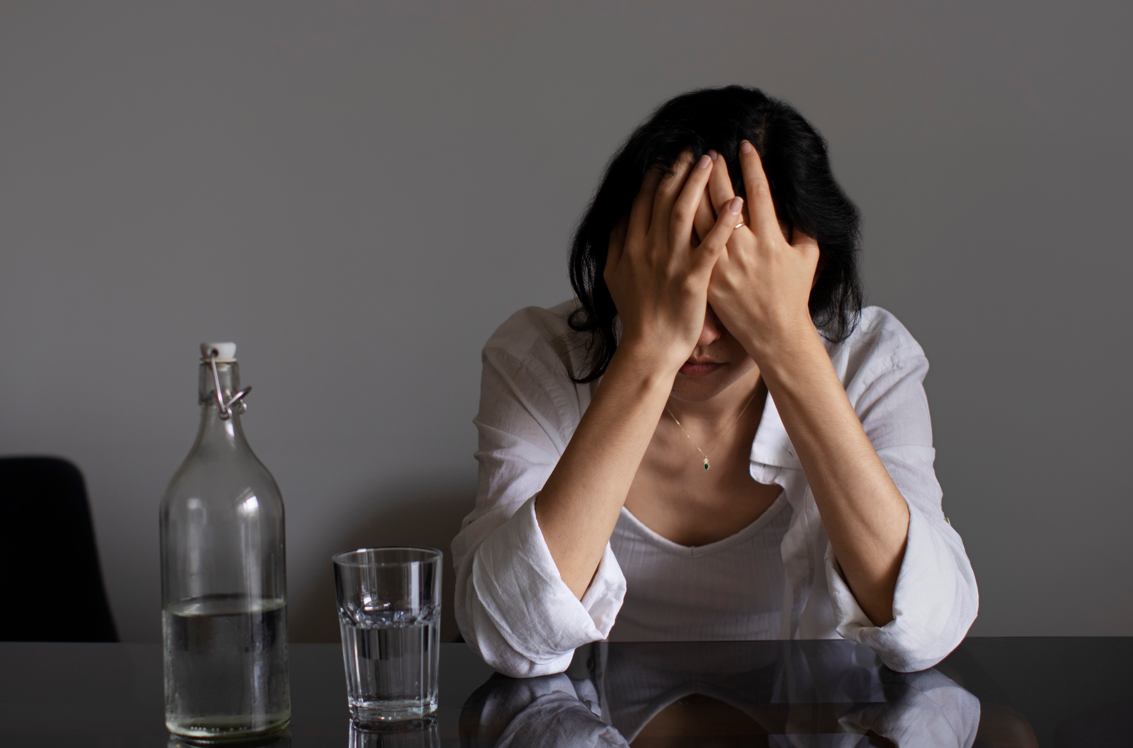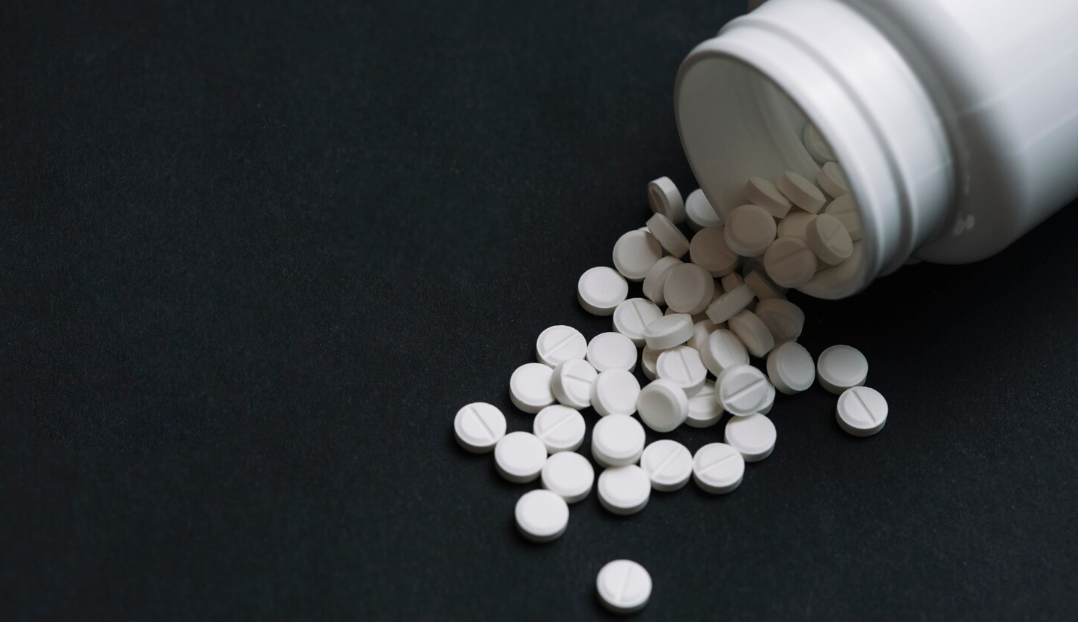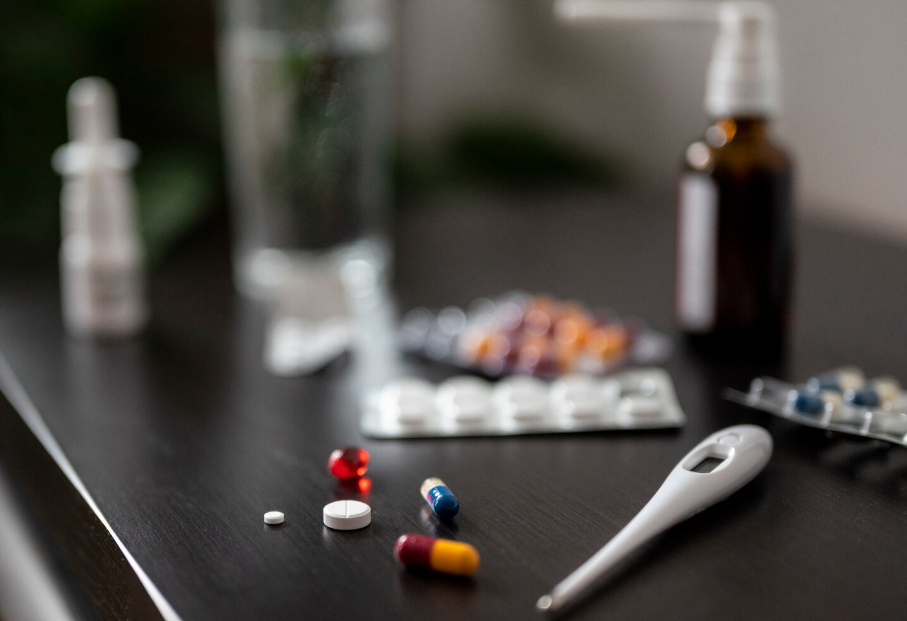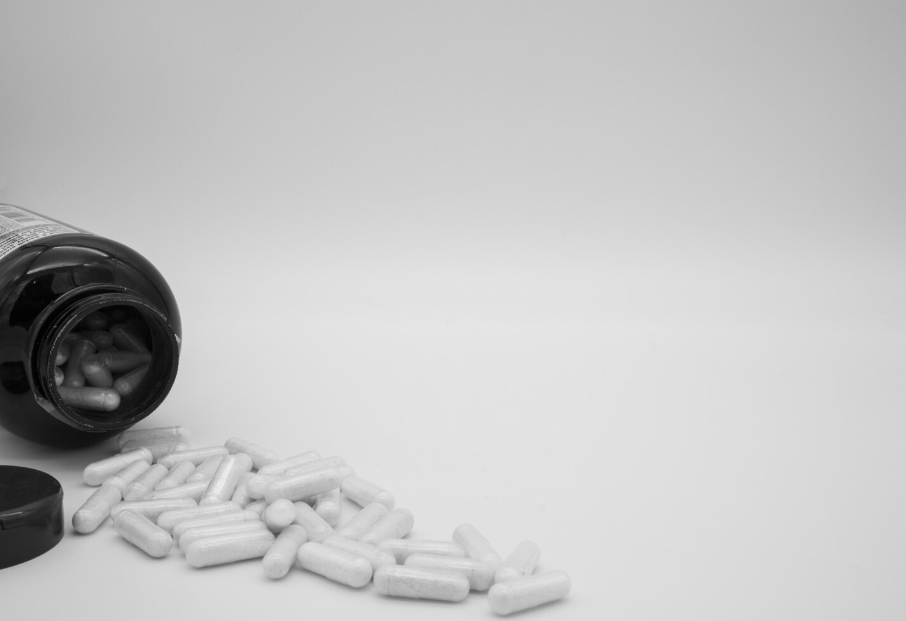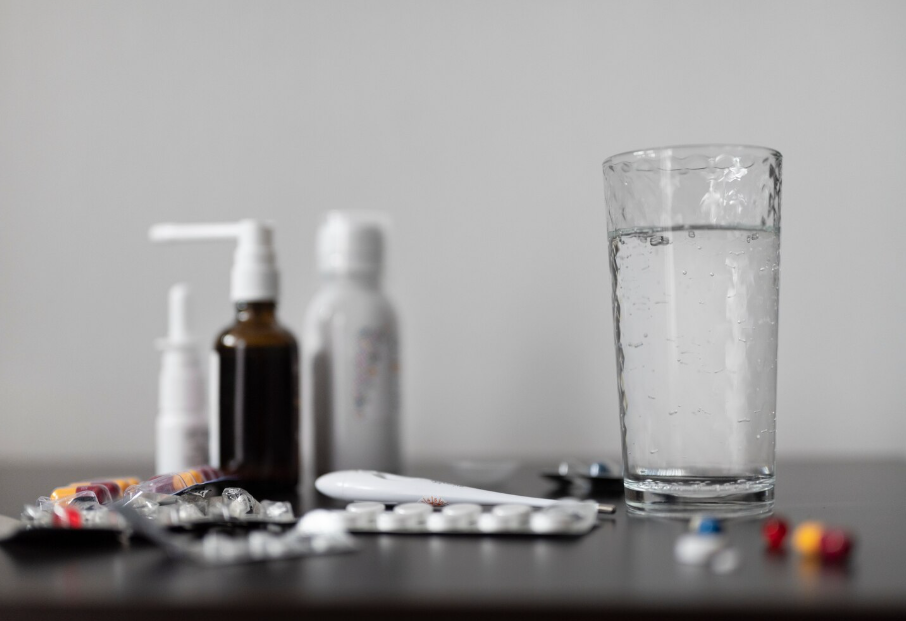Understanding Porn Addiction
To tackle the issue of overcoming a porn addiction, it is crucial to first understand what porn addiction is and the impact it can have on individuals.
What is Porn Addiction?
Porn addiction, also known as compulsive sexual behavior or problematic pornography use, refers to a condition where an individual has an excessive and uncontrollable urge to view pornography. It is characterized by an inability to control or stop the consumption of pornographic material, despite negative consequences on various aspects of one's life, such as relationships, work, and personal well-being.

Porn addiction can manifest in different ways, including spending excessive amounts of time watching pornography, losing interest in other activities, experiencing withdrawal symptoms when attempting to quit, and facing difficulties in maintaining healthy relationships.
The Impact of Porn Addiction
Porn addiction can have a profound impact on individuals, both psychologically and emotionally. Here are some key effects associated with porn addiction:
- Distorted Sexual Perception: Excessive exposure to pornographic material can lead to unrealistic expectations and distorted perceptions of sexual relationships, leading to difficulties in forming and maintaining healthy intimate connections.
- Negative Emotional Well-being: Porn addiction can contribute to feelings of guilt, shame, and low self-esteem. It may also lead to anxiety and depression, as individuals may struggle with the inability to control their behavior.
- Relationship Issues: Porn addiction can strain intimate relationships, as it may lead to a lack of emotional connection and intimacy with partners. It can also create feelings of betrayal and undermine trust.
- Decline in Productivity: Spending excessive time consuming pornography can have a negative impact on work or academic performance, leading to a decline in productivity and focus.
- Escalation and Desensitization: Over time, individuals with porn addiction may require more explicit or extreme material to achieve the same level of arousal, leading to desensitization and potential escalation into more extreme or harmful content.
Understanding the nature of porn addiction and its effects is an essential step in working towards recovery. It allows individuals to recognize the problem and seek appropriate support and resources to break free from the addiction's grip.
Overcoming Porn Addiction
Overcoming a porn addiction is a challenging process that requires dedication, commitment, and support. In this section, we will explore the process of recovery and the factors that can affect the time it takes to break free from a porn addiction.
The Process of Recovery
Recovery from a porn addiction is not a linear journey but rather a complex process that varies from person to person. It typically involves several stages, including:
- Recognition and Acceptance: The first step in overcoming a porn addiction is recognizing and accepting that there is a problem. This self-awareness is crucial for initiating the recovery process.
- Seeking Support: Seeking support from professionals, such as therapists or counselors, can provide valuable guidance and assistance throughout the recovery journey. They can help individuals understand the root causes of their addiction, develop coping strategies, and address any underlying emotional or psychological issues.
- Building Healthy Habits: Developing healthy habits is an essential part of recovery. This may involve finding alternative activities to replace the time spent on pornography, such as pursuing hobbies, exercising, or engaging in social activities. Creating a structured routine can also help individuals stay focused and avoid triggers.
- Managing Triggers and Cravings: Identifying and managing triggers and cravings is a critical aspect of the recovery process. Triggers can be certain situations, emotions, or environmental cues that prompt the urge to engage in pornographic material. Learning healthy coping mechanisms and developing strategies to deal with cravings can help individuals resist the temptation and maintain their progress.
- Relapse Prevention: Relapse is a common challenge during the recovery process. It's important to understand that relapse does not indicate failure but rather an opportunity to learn and strengthen one's commitment to recovery. Developing a relapse prevention plan, seeking ongoing support, and staying vigilant can help individuals navigate potential setbacks.
Factors Affecting the Recovery Time
The time it takes to overcome a porn addiction can vary significantly from person to person. Several factors can influence the recovery time, including:
- Duration and Severity of Addiction: The longer and more severe the addiction, the more time it may take to break free. Individuals who have been addicted to porn for a longer period or have developed strong dependencies may require more time and support to achieve lasting recovery.
- Individual Motivation and Effort: The level of motivation and effort individuals put into their recovery plays a significant role. Those who are highly motivated, actively engaged in the recovery process, and willing to make necessary changes may experience faster progress.
- Support System: Having a strong support system can greatly impact the recovery journey. Support from family, friends, or support groups can provide encouragement, accountability, and a sense of community, which can positively influence the recovery time.
- Presence of Underlying Issues: Porn addiction may be linked to underlying emotional, psychological, or relational issues. Addressing these underlying issues through therapy or counseling can contribute to a more comprehensive and successful recovery.
It's important to remember that recovery is a unique and personal experience. Comparing one's progress to others may not be helpful as each individual's journey is different. Patience, perseverance, and seeking professional help when needed are key factors in overcoming a porn addiction and achieving long-term recovery.
How Long Does It Take?
When it comes to breaking a porn addiction, the duration of recovery can vary from person to person. Several factors contribute to the recovery timeline, including the severity of the addiction, individual characteristics, and the level of support received. Understanding the individual variations and common timeframes for recovery can provide insight into what to expect during the journey to overcoming a porn addiction.
Individual Variations
Each person's experience with porn addiction is unique, and as a result, the time it takes to break free from the addiction can differ significantly. Some individuals may find themselves able to overcome their addiction relatively quickly, while others may require a more extended period of time.
Several factors contribute to these individual variations. These factors may include:
- Duration of addiction: The length of time an individual has been addicted to porn can impact the recovery process. Generally, longer addictions may require more time to fully recover.
- Frequency and intensity: The frequency and intensity of porn use can influence the level of dependence and the time it takes to break free from the addiction. Those who have engaged in more frequent and intense use may require more time and support to achieve recovery.
- Underlying issues: Co-occurring mental health conditions, such as anxiety or depression, can complicate the recovery process. Addressing these underlying issues alongside the addiction may require additional time and resources.
Common Timeframes for Recovery
While the duration of recovery varies, there are some common timeframes that can provide a general understanding of the process. It's essential to note that these timeframes are approximate and can vary based on individual circumstances. The recovery journey is not linear, and setbacks or relapses can occur along the way.
It's important to remember that these timeframes are not set in stone and can vary based on individual circumstances. Recovery is a personal journey, and progress should be measured by individual growth and well-being rather than a specific timeline.
Seeking professional help, joining support groups, and building a strong support system can significantly aid in the recovery process. With time, commitment, and a comprehensive approach, individuals can overcome porn addiction and lead a healthier and more fulfilling life.
Support and Resources
When it comes to overcoming a porn addiction, seeking support and utilizing available resources can be instrumental in the recovery journey. Two key avenues for assistance are professional help and therapy, as well as support groups and communities.
Professional Help and Therapy
Seeking professional help through therapy can provide individuals with the guidance and tools necessary to address and overcome a porn addiction. Therapists who specialize in addiction and sexual health can offer personalized treatment plans tailored to the specific needs of the individual.
Through therapy, individuals can explore the underlying factors contributing to their addiction, develop coping strategies, and learn healthier ways to manage emotions and cravings. Therapists may utilize various therapeutic approaches, such as cognitive-behavioral therapy (CBT), dialectical behavior therapy (DBT), or psychodynamic therapy, depending on the individual's unique circumstances.
Working with a trained professional can provide valuable insights, accountability, and ongoing support throughout the recovery process. The duration and frequency of therapy sessions will vary depending on the individual's needs and progress.
Support Groups and Communities
Engaging with support groups and communities can offer individuals a sense of belonging, understanding, and shared experiences. These groups provide a safe and non-judgmental space for individuals to discuss their challenges, seek advice, and receive support from others who are going through similar struggles.
Support groups can take various forms, including in-person meetings, online forums, or virtual support groups. Many organizations and online platforms specifically cater to individuals overcoming porn addiction, offering a supportive network of peers who can provide empathy, encouragement, and practical tips for recovery.
Participating in support groups and communities can help individuals develop a sense of accountability, gain valuable insights from others who have successfully overcome addiction, and find inspiration to stay committed to their recovery journey.
It's important to note that while professional help and support groups can be invaluable resources, the effectiveness of these resources may vary from person to person. Each individual's recovery journey is unique, and it's essential to find the approach that aligns best with their needs and preferences.
Remember, seeking support is a sign of strength and can greatly enhance the chances of successful recovery. By combining professional help with the understanding and encouragement found in support groups and communities, individuals can navigate their way towards breaking free from a porn addiction and achieving a healthier and more fulfilling life.
Tips for a Successful Recovery
Recovering from a porn addiction can be a challenging journey, but with the right strategies and support, it is possible to break free from its grip. Here are some tips to help you achieve a successful recovery:
Developing a Support System
Building a strong support system is crucial during the recovery process. Surrounding yourself with understanding and supportive individuals can provide the encouragement and accountability needed to stay on track. Consider reaching out to trusted friends, family members, or even joining support groups specifically designed for individuals overcoming porn addiction.
Support System Options
- Friends
- Family members
- Support groups
Building Healthy Habits
Replacing unhealthy habits with healthy ones is an essential part of the recovery process. By focusing on positive activities, you can redirect your energy and create a more fulfilling lifestyle. Engage in activities that bring you joy and fulfillment, such as exercise, hobbies, or pursuing personal interests. Developing a routine that includes these activities can help reduce the desire for pornography and create a sense of purpose.
Healthy Habits
- Regular exercise
- Engaging in hobbies
- Pursuing personal interests
Managing Triggers and Cravings
Identifying and managing triggers and cravings is a crucial aspect of overcoming a porn addiction. Triggers can be external factors, such as specific environments or situations, or internal factors, such as stress or negative emotions. Developing strategies to cope with these triggers and cravings can help prevent relapse.
Strategies for Managing Triggers and Cravings
- Avoiding triggering environments or situations
- Practicing relaxation techniques, such as deep breathing or meditation
- Distracting yourself with healthy activities when cravings arise
It's important to remember that recovery timelines can vary from person to person. Some individuals may experience significant progress in a few months, while others may take longer. The key is to stay committed to the recovery process and seek professional help if needed.
By developing a strong support system, building healthy habits, and implementing strategies to manage triggers and cravings, you can increase your chances of a successful recovery from a porn addiction. Remember, seeking professional help and therapy, as well as joining support groups and communities, can provide additional guidance and resources throughout your journey towards a healthier and happier life.
Sources
https://www.coach.me/questions/how-many-days-it-takes-to-get-rid-of-the-porn-addiction
https://www.goodrx.com/well-being/behavioral-addiction/porn-addiction-withdrawal
https://husbandhelphaven.com/porn-addiction-withdrawal-walkthrough
https://delamere.com/how-to-stop-a-porn-addiction
https://www.wikihow.com/Deal-With-Porn-Addiction


.jpg)




